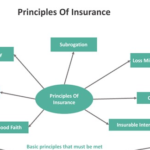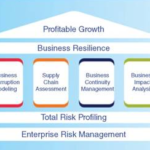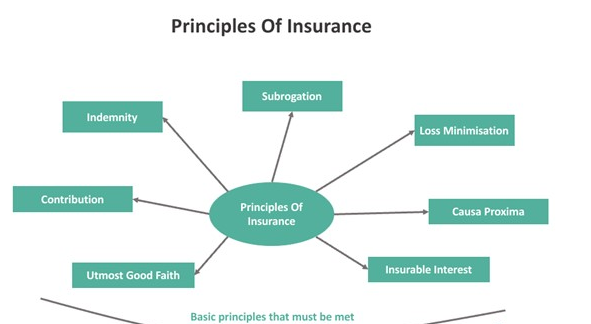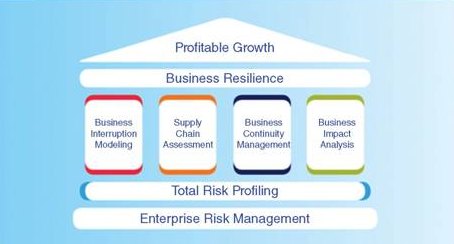The construction industry is one of the most complex and high-risk sectors in the global economy. It involves multiple stakeholders, significant capital investments, extensive project timelines, and numerous uncertainties such as accidents, natural disasters, and equipment failures. These risks can lead to substantial financial losses if not adequately managed. As a result, insurance policies play a vital role in safeguarding construction projects, contractors, workers, and investors from unexpected setbacks.
In this article, we will explore the types of insurance policies and covers commonly used in the construction industry, their significance, the challenges of securing adequate coverage, and the evolving landscape of construction insurance as the industry grows more dynamic and complex.
The Importance of Insurance in the Construction Industry
Construction projects are inherently risky. They involve numerous phases—from planning and design to execution and handover—all of which are prone to unforeseen risks and complications. Construction insurance is designed to provide financial protection against these risks, ensuring that contractors, project owners, and other stakeholders are shielded from significant losses if an incident occurs. Insurance offers several important benefits:
- Risk Transfer: Insurance transfers the financial risk of accidents, damage, or delays from the project owners or contractors to the insurer. This enables the stakeholders to focus on the successful completion of the project without being overly concerned about the financial impact of potential risks.
- Financial Security: In the event of a major incident—such as an accident, fire, or equipment failure—insurance provides the necessary funds to cover damages, repairs, or legal claims. This is crucial in an industry where a single event can lead to catastrophic financial losses.
- Legal Requirements: In many jurisdictions, certain types of insurance are mandatory for construction projects. For example, workers’ compensation insurance is often required to cover workplace injuries, and liability insurance may be needed to protect against third-party claims.
- Risk Management and Compliance: Insurance companies often provide risk management services and safety inspections as part of their coverage. These services help contractors and project owners identify potential hazards, implement preventive measures, and ensure compliance with safety regulations.
- Protection of Workers and Third Parties: Construction sites are dangerous, and accidents can lead to injuries or fatalities. Insurance policies ensure that workers receive compensation for injuries, and they protect contractors from legal liabilities arising from accidents involving third parties, such as bystanders or neighboring property owners.
Types of Insurance Policies in the Construction Industry
There are various types of insurance policies that construction companies and project owners can obtain to cover different aspects of a construction project. These policies can be tailored to the specific risks and needs of a project. Below, we discuss the most common types of insurance covers in the construction industry.
1. Builder’s Risk Insurance
Builder’s Risk Insurance, also known as Contractors’ All Risk (CAR) Insurance, is one of the most essential policies in the construction industry. It provides coverage for physical damage to the construction project itself while it is under construction. This insurance covers the building, materials, and equipment that are part of the project against perils such as fire, theft, vandalism, and certain natural disasters.
Key elements of Builder’s Risk Insurance:
- Scope of Coverage: The policy generally covers damage to the structure under construction, materials on-site, and sometimes equipment that is temporarily stored off-site.
- Exclusions: The policy may exclude damage caused by earthquakes, floods, or other specific perils unless these are explicitly added as endorsements. Additionally, general wear and tear or poor workmanship are typically excluded.
- Policy Duration: Builder’s Risk policies usually last for the duration of the construction project and may need to be renewed if the project timeline extends.
2. General Liability Insurance
General Liability Insurance (GLI) is critical for protecting construction companies from third-party claims of bodily injury or property damage caused by the construction process. This insurance provides coverage for legal defense costs, settlements, and judgments in cases where a contractor or construction company is held responsible for injuries or damages.
For example, if a pedestrian is injured by debris falling from a construction site or neighboring property is damaged due to excavation, the contractor can be held liable. General Liability Insurance would cover these types of incidents.
3. Workers’ Compensation Insurance
The construction industry is known for its high rates of workplace injuries and accidents. Workers’ Compensation Insurance is required in almost every state in the U.S. and in many other countries to cover medical expenses and lost wages for workers who are injured on the job. In the construction industry, workers are often exposed to hazards such as heavy machinery, heights, and dangerous materials, making this type of insurance indispensable.
Workers’ Compensation provides:
- Medical Coverage: For the treatment of work-related injuries or illnesses.
- Lost Wages Compensation: To cover a portion of the worker’s income during recovery.
- Rehabilitation Benefits: To support injured workers in their return to work.
Without Workers’ Compensation Insurance, companies could face expensive lawsuits and liability claims in the event of a workplace accident.
4. Professional Liability Insurance (Errors & Omissions Insurance)
Also known as Errors & Omissions (E&O) Insurance, Professional Liability Insurance protects contractors, architects, engineers, and other professionals involved in the design and planning phases of a construction project. This insurance covers claims related to design flaws, professional negligence, and errors in project specifications that lead to financial losses.
For instance, if an architect makes an error in the design that results in structural instability, the client may file a lawsuit for damages. Professional Liability Insurance will cover the legal costs and any settlements or judgments.
5. Commercial Auto Insurance
Construction companies rely on a fleet of vehicles, including trucks, vans, and heavy equipment. Commercial Auto Insurance provides coverage for vehicles used in the course of construction activities. This insurance covers liability for accidents involving company vehicles, as well as physical damage to the vehicles themselves.
It typically includes:
- Liability Coverage: For bodily injury or property damage caused by the vehicle.
- Collision Coverage: For damage to the vehicle resulting from a collision.
- Comprehensive Coverage: For non-collision damage, such as theft, fire, or vandalism.
6. Umbrella Insurance
Umbrella Insurance provides additional liability coverage beyond the limits of other policies, such as General Liability Insurance or Commercial Auto Insurance. This type of insurance is particularly useful for large construction projects where the potential for catastrophic losses is high.
For example, if a claim exceeds the limits of a General Liability policy, the Umbrella Insurance policy will cover the remaining costs, up to its own limit. This ensures that the contractor or project owner is not exposed to significant out-of-pocket expenses in the event of a large claim.
7. Pollution Liability Insurance
Construction activities can sometimes result in environmental damage, such as soil contamination or the release of hazardous materials. Pollution Liability Insurance covers the costs of cleaning up pollution, as well as third-party claims for environmental damage or health issues caused by construction activities.
This type of insurance is essential for projects involving excavation, demolition, or the use of potentially hazardous materials. Many government contracts also require contractors to carry Pollution Liability coverage to protect against environmental risks.
8. Surety Bonds
Although not technically insurance, Surety Bonds play a crucial role in the construction industry. A surety bond is a financial guarantee that a contractor will complete a project according to the contract’s terms. If the contractor fails to perform, the surety (often an insurance company) will compensate the project owner for any financial losses.
There are several types of surety bonds used in construction:
- Bid Bonds: Guarantee that a contractor will honor their bid and sign the contract if selected.
- Performance Bonds: Guarantee that the contractor will complete the project as specified.
- Payment Bonds: Guarantee that the contractor will pay subcontractors and suppliers.
Surety bonds are often required for public projects and large-scale private developments to ensure that the contractor is financially capable of completing the work.
Challenges in Securing Adequate Construction Insurance
Despite the clear need for insurance in the construction industry, securing adequate coverage can be challenging. Some of the key challenges include:
- Complexity of Projects: Large-scale construction projects often involve multiple stakeholders, including contractors, subcontractors, architects, and engineers. Ensuring that all parties have appropriate insurance coverage and that policies do not overlap or leave gaps can be difficult.
- Cost of Premiums: The cost of construction insurance premiums can be significant, particularly for high-risk projects. Contractors must balance the need for adequate coverage with budget constraints, making it difficult to find affordable policies without compromising on protection.
- Risk Assessments: Insurance companies base premiums on the perceived risk of a project, which can be difficult to assess accurately in the early stages. Changes to the project scope, unforeseen hazards, or delays can all affect the risk profile and result in higher premiums or changes to coverage.
- Claims Disputes: In the event of a claim, disputes can arise between contractors, project owners, and insurance companies over the extent of coverage or the cause of the loss. Resolving these disputes can be time-consuming and expensive, delaying project completion and adding to costs.
The Future of Construction Insurance
The construction industry is undergoing significant changes, with advances in technology, sustainability, and safety practices shaping the way projects are managed and executed. As a result, the landscape of construction insurance is evolving to address new risks and opportunities.
- Technology and Data: The use of drones, sensors, and data analytics is transforming risk assessment in construction. Insurers can now use real-time data to monitor projects, assess risks more accurately, and offer tailored insurance solutions.
- Sustainability and Green Building: As more construction projects focus on sustainability and green building practices, insurers are developing specialized policies to cover risks associated with these new technologies and materials.
- Modular Construction: The rise of modular construction, where buildings are assembled off-site and transported to the site for final assembly, presents new challenges and opportunities for insurers. Modular construction reduces some risks (such as weather delays) but introduces others (such as transportation risks).
Conclusion
Insurance is an essential tool for managing the myriad risks that come with construction projects. From Builder’s Risk Insurance to Professional Liability coverage, there are a variety of policies available to protect contractors, workers, and project owners from financial loss. While securing adequate coverage can be complex and costly, the protection it offers is critical for ensuring the successful completion of construction projects.
As the construction industry continues to evolve, so too will the insurance products and services designed to support it. Whether through the use of new technologies or the development of specialized policies for emerging risks, the construction insurance industry will play a vital role in protecting the future of building and infrastructure development.








